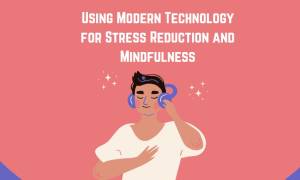Some people are naturally early risers and love mornings. Unfortunately, I am not one of those people. I still must wake up early to get my son (who is also not a morning person) out of bed and out the door, so he doesn’t miss the bus. It probably doesn’t sound like that big deal to some of you, but believe me, it’s a daily struggle that we both endure.
After taking a long hard look at our sleeping habits and realizing that we were both exhausted from never getting enough sleep, I decided to switch things up a little bit.
Since I was hoping to improve both my son’s and my sleep habits, one of the first things I searched for was sleep requirements for different ages. The National Sleep Foundation formed a sleep panel made up of 18 scientists and researchers, and they recently updated the sleep recommendations to:
- Newborns (0-3 months): 14-17 hours
- Infants (4-11 months): 12-15 hours
- Toddlers (1-2 years): 11-14 hours
- Preschoolers (3-5): 10-13 hours
- School-age children (6-13): 9-11 hours
- Teenagers (14-17): 8-10 hours
- Younger adults (18-25): 7-9 hours
- Adults (26-64): 7-9 hours
- Older adults (65+): 7-8 hours
Looking at their time suggestions proved to me that we weren’t getting enough sleep each night. So I started searching the internet for tips.
So, for all my fellow night owls out there, who have also been forced to become early birds, I have discovered some useful tips that we have been testing and believe it or not, they work! Check out this list of ways that you are sabotaging your sleep patterns and what you can do about it.
1. Caffeine in the Evening
We all love our caffeinated drinks. Whether you’re a coffee, tea, or soda drinker, it’s easy to keep drinking them through the evening and not think much about it. Although, according to the research you should cut out the caffeine at least 6 hours before you plan on going to bed or your sleep patterns could be disrupted. As a side note, chocolate also has caffeine in it, so pay attention to your nighttime snacks because they could also affect your sleep.
2. Using Electronics Close to Bedtime
It’s hard to put our phones, computers, and tablets away sometimes but this tip could save you some tossing and turn. The blue light emitted from our favorite gadgets tricks our brains into thinking that it’s daytime still. The issue here is that our brain doesn’t produce the melatonin that helps us sleep when it thinks it’s daytime still.
I started searching for my phone and found a Blue Light Filter in the settings, which turns the blue light off at a set time each evening. There’s also light bulbs you can buy that emit different types of light, or you can try blue light blocking glasses.
3. Stress and Anxiety
Anxiety can wreak havoc on our bodies in many ways, but our sleep patterns are almost always disrupted. When we are upset or worried our bodies produce cortisol and adrenaline which leads to stress-induced insomnia according to research.
To combat this, we need to be proactive in the art of relaxation. We’re all different so what might be relaxing for me, might drive you crazy but here are a few of my favorite ways to rest in the evening for you to try.
- Fifteen to thirty minutes of yoga
- Take a long hot bath; add lavender oil or Epsom salts to the water to aid in relaxation
- Listen to soothing music
- Bedtime breathing exercises
- De-stress techniques
4. One Too Many Alcoholic Beverages
Many people like to have a beer or a glass of wine to relax in the evenings after work, but too much could be a reason you’re missing out on sleep. The reason for this is that it makes us wake up more during the second half of the night. This disrupts our sleep pattern, and we miss out on our REM sleep. Keeping your drinks to a one or two maximum will help you get a better night sleep.
Drinking some water in between drinks will also keep you from getting dehydrated, but too much will have you running to the bathroom. So pay attention to how many drinks you consume close to bedtime.
5. Too Much Noise
This one you may not have much control over. Perhaps you live next to a busy road or train tracks. Maybe your neighbor in the next apartment likes to listen to loud music at night and ignores your requests for quiet.
However, there are a few things you can try. Earplugs are very helpful in this situation; I used them almost every night when I was in college. White noise machines are also especially beneficial in these cases. They might take a little time to get used to, but they do help block out unwanted noise.
6. You Fall Asleep Watching TV
If the TV is your favorite “lullaby,” you may be doing yourself more harm than good. Not only does it shell out a healthy dose of the blue light I talked about earlier but also, the sounds from the shows can interrupt our sleep.
If you must fall asleep to the TV, there are a couple of things to try that will help. Reducing the brightness levels on your TV and using the sleep timer that automatically turns it off after a set amount of time are extremely helpful. Besides, no one likes waking up in the middle of the night to infomercials anyway.
7. Not Getting Enough Exercise During the Day
If you have a sedentary job where you’re sitting most of the day, then you’re most likely not getting enough exercise. Adding 20 – 30 minutes of cardio per day will probably help you tremendously. Regular exercisers have much better sleep patterns than those who don’t exercise at all.
If you already exercise you might want to look at the time of day you do your workouts. High energy people seem to do better with an evening work-out because it calms them down afterward. Low energy people are better off working out in the mornings because it energizes them.
8. Finding Your Perfect Temperature
If your bedroom is too hot or too cold, it can affect your night’s sleep. Adjust your thermostat at night to make sure your room is comfortable. Some people use extra blankets, while others need a fan blowing on them to sleep well. Once you find your perfect sleep environment, it’s sure to make a difference.
9. Reading in Bed
Many people find that reading for 30 minutes before bed helps them get drowsy faster. When choosing a bedtime book make sure to pick a fiction story. Nonfiction, especially the self-help books tend to make your mind work more, which will keep you awake thinking. Also, try reading in the dark with a book light instead of the traditional lamps which tend to keep us awake.
I’ve personally tested these tips and think they work well. I may not get a full night’s sleep every night, but I can see a significant improvement.
I know many people suffer from insomnia and I’m willing to bet you all have some beauty tips you could share in the comments section, we’d love to read them!
Please Share with Your Friends and Family
About the Author: Bethany Vincent is a writer from La Grange Kentucky who has loved playing with words since she first learned to speak. She lives with her teenage son and adopted dog daughter in a cute, yellow house with a picket fence. During college at the University of Louisville, she could be found at the writing center most of the time, and her primary areas of focus were literature, creative writing, and visual arts. Bethany has contributed articles and created content for many websites and blogs during her writing career. In her free time, she enjoys gardening, juggle-dancing, yoga, photography, cooking and singing along with her favorite songs while in the car driving. In the future, she plans to finish writing her first book and hopes to travel to all the beautiful places that she’s read about.














